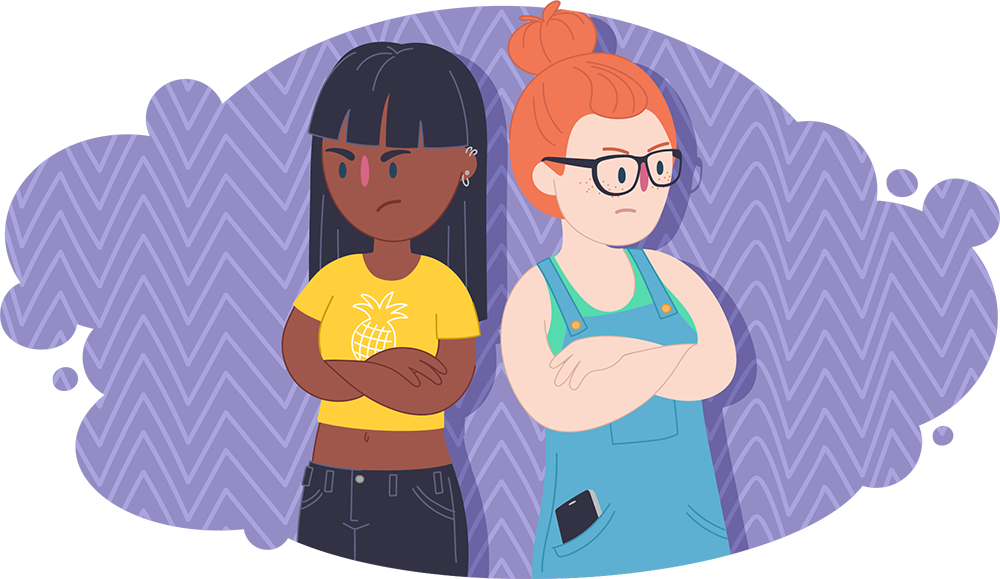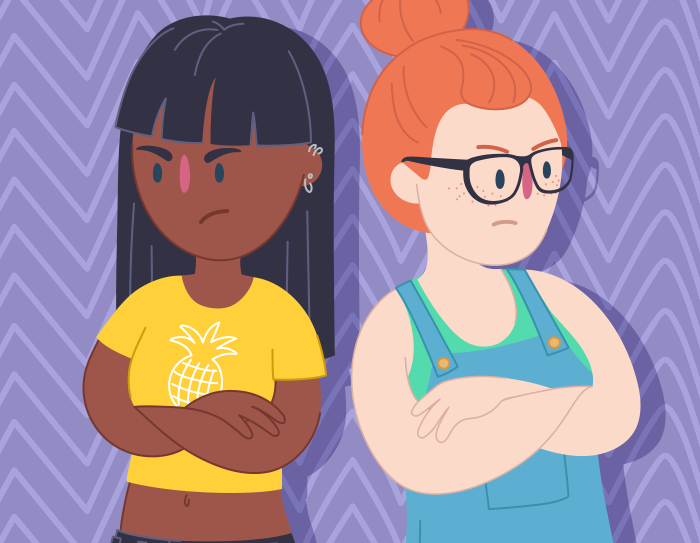Ways to deal with conflict
Conflict can happen in any situation. Learning how to deal with it well can keep your relationships on track.

Conflict is a part of life
We all see and think about the world in different ways – this can lead to different opinions about the exact same thing
- Conflict can make some people feel sad, upset or scared, while others may feel energised and excited by conflict
- Conflict can affect our bodies and might cause tension in our muscles, stop us feeling hungry or even cause headaches
- Sometimes conflict doesn’t fade away on its own and needs to be worked at so that solutions can be found
What can lead to conflict?
The way we express our ideas, needs and opinions can lead to conflict with others and vice versa.
Conflict may come up at school, home, work or with friends because:
- Ideas, opinions or concerns are not being heard
- You or others feel that you aren’t being treated fairly
- Expectations are not being met
- There is a difference in personalities or communication styles
- There is a difference in strongly held beliefs or opinions
"An otherwise perfectly healthy friendship can have toxic behaviour in it... That doesn't mean the whole relationship is toxic – just that specific behaviour. I've got some mates and we like to joke around online. Recently, it's actually become really derogatory towards girls in my year level and I'm not ok with it. So what can I do to stop it?"
We've partnered with PROJECT ROCKIT to help you know what to say or do when friendships start to turn toxic.
How to deal with conflict
The best way to deal with conflict is to talk to the other people involved and try to work things out. Start by trying these tips:
Dealing with conflict – why it’s worth it
Figuring out ways to deal with conflict can stop things from getting worse and helps you learn important skills for later in life.
Understanding ways to deal with conflict can help you to:
Become a better communicator
Get better at resolving conflicts early
Feel like you have achieved something positive
Be more understanding of other people’s needs
Become more confident at dealing with hard situations
Learn ways to avoid conflict starting in the first place
“Learning how to deal with conflict in a positive way is a skill that lasts a lifetime.” – Yvonne, Kids Helpline Counsellor
Check these out too:
Talking helps! We’re here for you.
No problem is too big or too small.
We're here 24 hours a day, 7 days a week






